Two worlds come alive as the cold begins to settle on Delhi. As the festive season and stubble burning continue to worsen the air quality year-on-year, one world holes up at home under thick blankets, sweaters, and air purifiers, while the other is left out on the road or in structures barely passable as homes, struggling to breathe under the weight of the cold and thick smog.
On one such cold winter morning in 2011, Kushal Raj Chakrovarty (48), a resident of Gurugram, witnessed a glimpse of this when he was dropping his two daughters to school. On his way, he spotted two children, dressed in uniform, walking to a local school near a temple. They had no winter wear, socks or even shoes as they made their way through the harsh winds.
“It was a jarring moment. In my arms, I had my own two kids, who were well taken care of, and then there were these children, who didn’t even have the basics they needed to survive the cold,” Kushal recalls in conversation with The Better India.
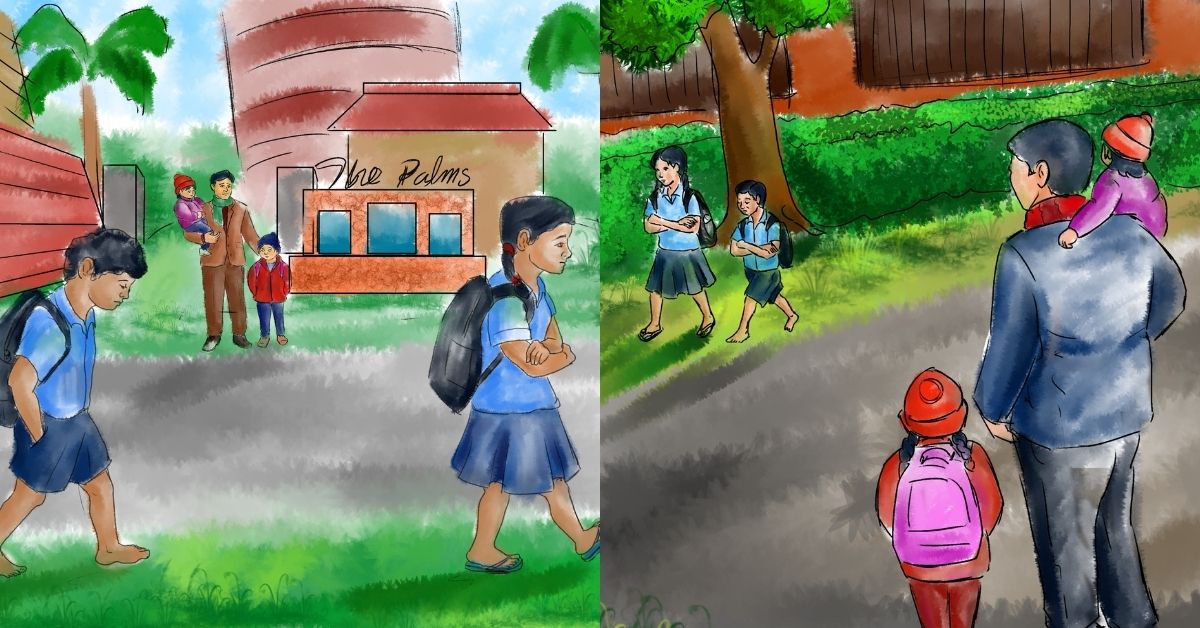
The very next day, Kushal went to the school near the temple, and found that what he had witnessed the previous day was the case of all the 250 children who studied there. So he handed out shoes and socks to the children to keep them warm.
This one act of kindness eventually transformed into a number of small gestures, wherein Kushal began supporting local charities, NGOs, and schools with requirements such as water, electricity and automated kitchens.
This, he says, was the informal inception of his NGO, Lotus Petals Foundation, which he funded from his pocket at first, and then took a loan for.
Over the years, Kushal’s social work made him privy to a common problem among children of low-income groups. He found that many of them who were in school were studying in classes that were far lower than their actual age.
“For example, a 14-year-old would be studying in Class 3. One boy had been in Class 5 for almost five years, and he was around 15-16 years old,” he explains.
A Future Worth Dreaming Of
Kushal found that these children had become comfortable in non-profit schools, unwilling to go to government ones because the latter had poor infrastructure. “The kids would hang in the education system till they came of age, and then go on to join their parents in whatever jobs they’re doing. They are essentially fodder for the underbelly of society. They live in the ‘millenium city’ and aspire to one day live or work in the tall glass buildings they see around them, but they don’t have the means to.”
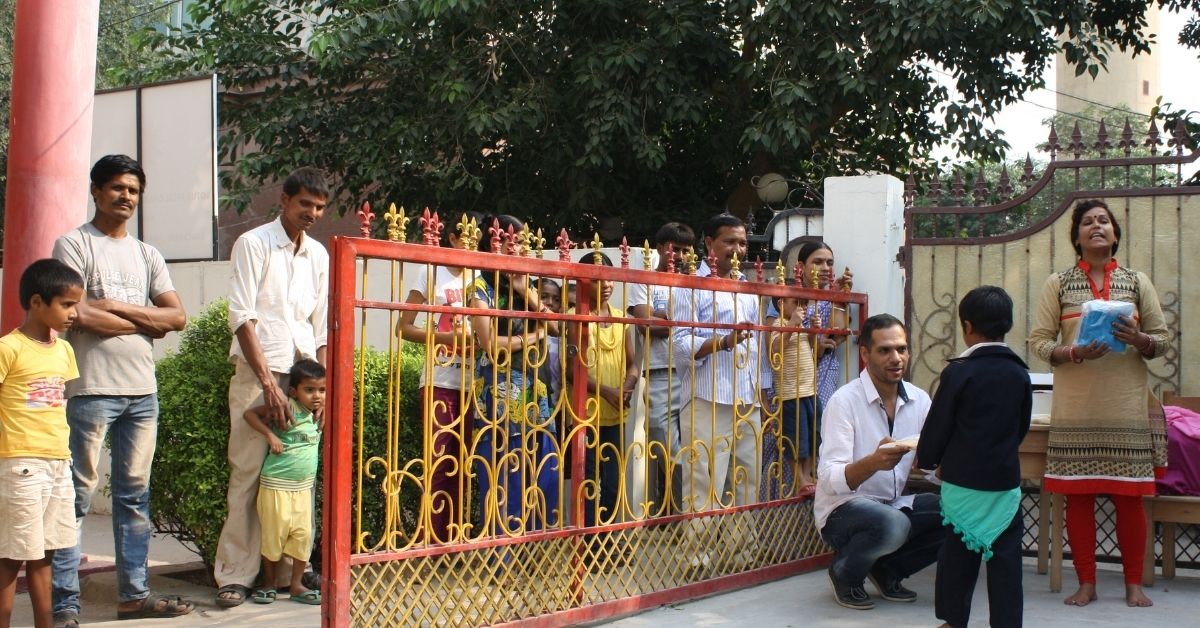
He adds, “Moreover, once someone starts doing manual labour, it’s a sentence for life. As you grow older, your income decreases as your physical strength does.”
So, Kushal set up a programme called Pratishthan, an English medium school where children aged around 12 and 14 years could fast-track their education in a five-year programme. Those who might be lagging in the education system due to fractured schooling are provided with vocational training, as well as courses in personality development and language ability. They are also given soft-skill training and etiquette development to make job hiring easier on the basis of education.
Kushal rented a room in a shopping arcade near his house, and began with around six children, one math teacher, and three computers. The school follows the National Institute of Open Schooling (NIOS) board.
Teaching the children helped Kushal realise a few things. “I found that their basic education was so weak that we had to start from scratch. So I took PG accommodation in the nearby slum for the boys to start a full-time school from kindergarten onwards. I also learned that when these kids fall sick, in many cases, they’re treated only when their condition deteriorates. So a cold will not be treated, but pneumonia will. So the children would have to miss school when they were sick, and I’d take them to the hospital to be treated. But this gap in healthcare inspired me to get a doctor who would conduct regular check ups to make sure everything is in place,” he explains.
By 2016, Kushal as well as his six students hit a milestone. The children graduated Class 10, and he quit his corporate job for good to dedicate all his time for their welfare. “I had the option to move to Sweden for my job, but I decided to stay back,” he says.
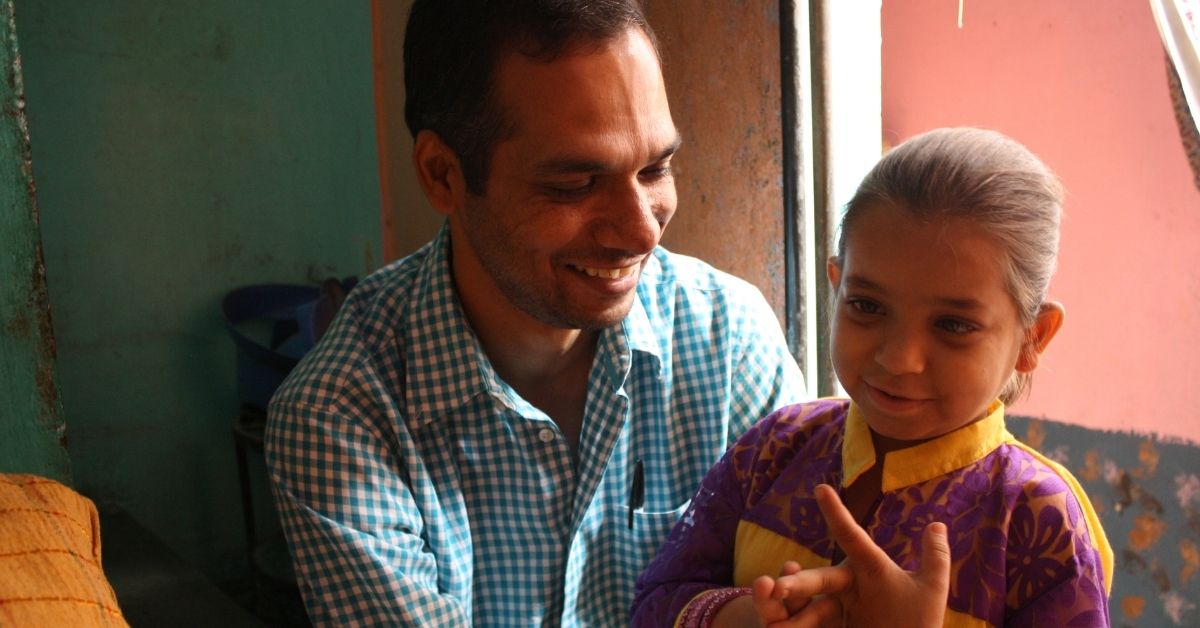
In 2018, the six students passed out from Class 12. Four of them are now employed as cashiers and in similar jobs, and one works in an MNC, having managed to move his family out of their tin home into a pucca house with a toilet and kitchen for themselves. The other student is currently a second-year medical student.
Around this time, more programmes began taking shape, and neighbouring schools began approaching the foundation for help.
These included Jeevika, a skill development programme that focuses on senior secondary students to make them ready for the formal job market after they leave Class 12.
Another project, Aarogya Wellness, is a healthcare programme that provides hygienic and nutritious meals, mental health counselling, yoga sessions and more to the children. The Sahyog Project collaborates with government schools to improve pre-existing infrastructure and assistance in academic learning. Lotus Petals also has various scholarships in place for students to pursue higher education in medicine, engineering and more. “We also provide help for those who want to start scholarships in, say, the memory of their loved ones,” Kushal notes.
In 2014, Kushal was joined by an old friend, Saloni Bhardwaj, a writer and journalist who moved back home from the US to help his cause. She is the co-founder and CTO of Lotus Petals.
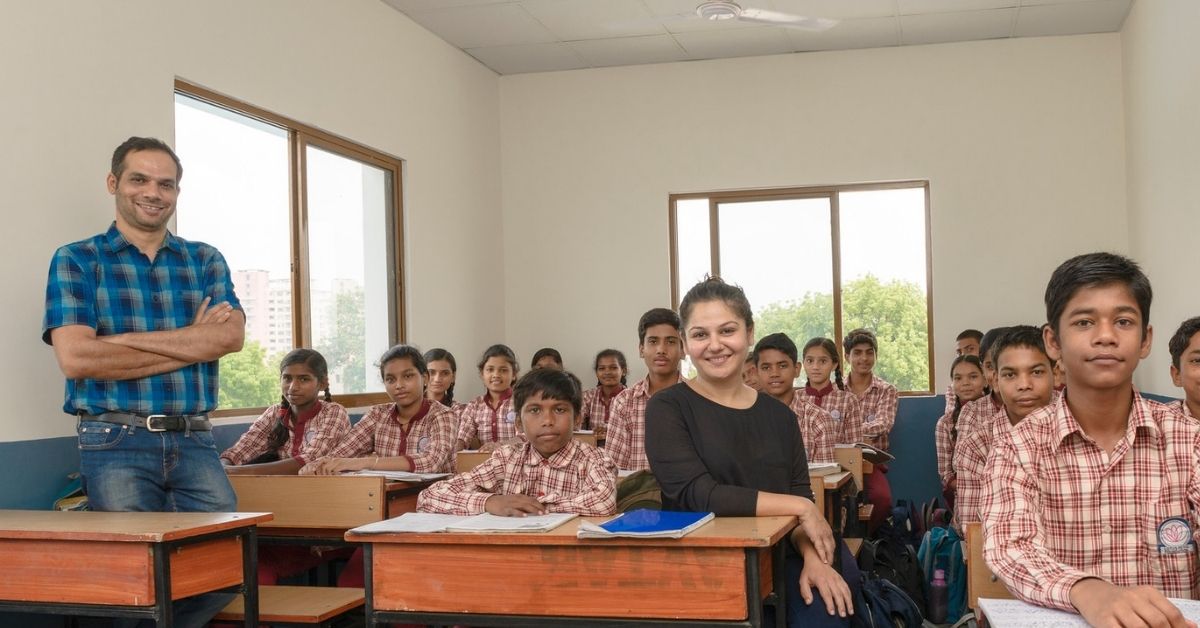
Million Bricks Project
At the onset of the COVID-19 pandemic, the organisation also provided devices and full-day data packs to their students so they would not miss out on education. As many non-profits had to shut down, Kushal and his organisation took in their students. “We transitioned into hybrid schooling, where teachers teach from a cubicle, and students have the option of either attending from home or coming to the class,” he says. “Currently, we are directly supporting around 1,200 students and 14 government schools under our programmes.”
Lotus Petal’s teacher-student ratio is 1:13, and their average attendance hits 96%. Kushal says approximately 2,000 students are benefiting through their government school programmes, and 28 students are under scholarships to pursue higher education.
Kavita (42), who works in housekeeping, enrolled her son Aman with Lotus Petals in 2017. Before this, she was sending him to a school that was located at least 5 kilometres away from their house. “So everytime he left, I’d be riddled with worry till he returned home,” she says.
But since Aman was taken into Lotus Petals, both Kavita and he agree that his life has been transformed. He’s currently in Class 12 and studying computers, which he plans to pursue in his higher studies as well. “There have been many changes in my life since I came to Lotus Petals — it’s been almost miraculous. I’m able to talk to you so confidently thanks to my teachers who stood by me. They have shaped my personality,” he says.
In 2017, a friend’s donation helped Kushal buy five acres of land on the outskirts of Gurugram, where the organisation now plans to construct a new campus for the kids.
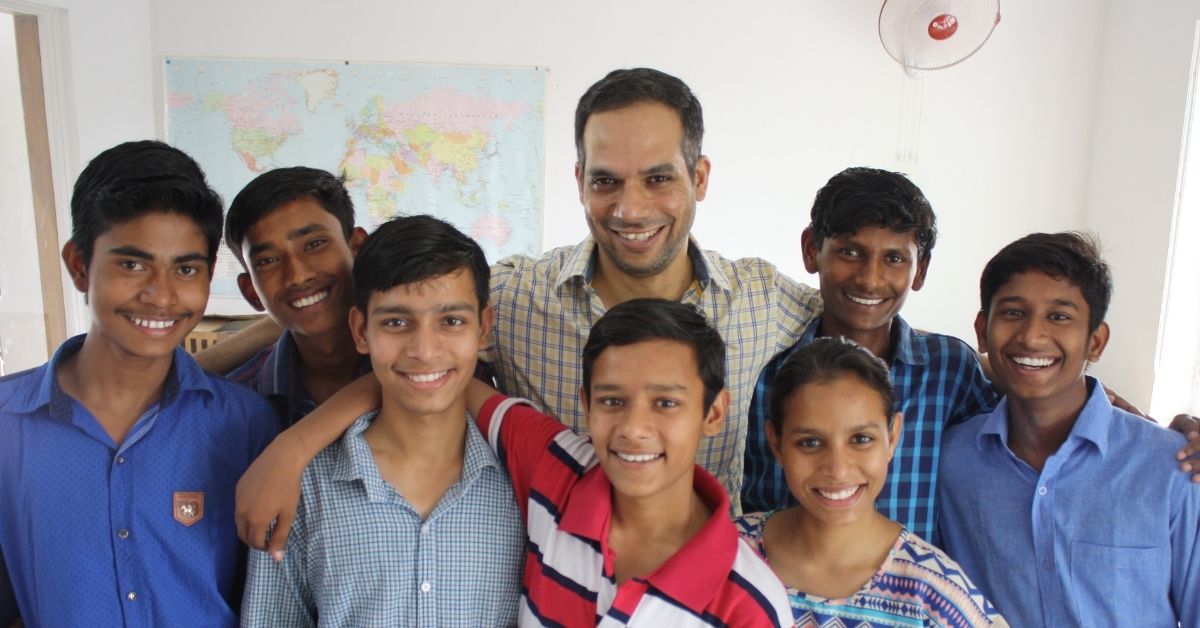
“The idea is to scale up our existing infrastructure and programmes and widen our reach. The campus will be big enough to provide education to at least 17,000 students. To raise funds for this, we started a campaign called the ‘Million Bricks Project’, because we will need a million bricks to build this. We’re currently seeking donations for the same.”
Speaking of the gaps and challenges in making education more accessible to children from low-income families, Kushal notes, “The biggest challenge currently is the digital divide, which the pandemic has only widened. There is the problem of hidden costs such as the price of the device and the data packs. There’s also economic instability in the families, especially due to the pandemic, and this greatly impacts the children because they are then expected to drop out of school and take up jobs to help their families survive.”
He adds, “We have to create awareness among parents that education can lead to a better life, but requires investment from a family. The child needs to be in the system for at least 12-14 years to be employed; it’s important to attend school everyday. Parent counselling needs to be better. Another challenge we face is that when the child starts speaking in English and can start doing basic jobs, both the parents and the children become complacent, but fail to realise that these basic jobs are not feasible in the long term.”
Regardless, Kushal’s labour of love powers on. It has been five years or so since he quit his high-flying career to fulfil his dream of seeing a better world, and he says the learnings from his journey have been immense. “We’re dealing with the development of human beings, and not products. In the corporate world, a robust system exists to determine your performance — market feedback. That’s not true for the social sector. So how do you know when you’re making an impact? You just have to keep at it. What I have learned in this experience, and through my transition, is that I have to be long term in my approach,” he notes.
You can support Lotus Petals’ Million Brick Project by clicking here. For more information, you can visit their website.
No comments:
Post a Comment